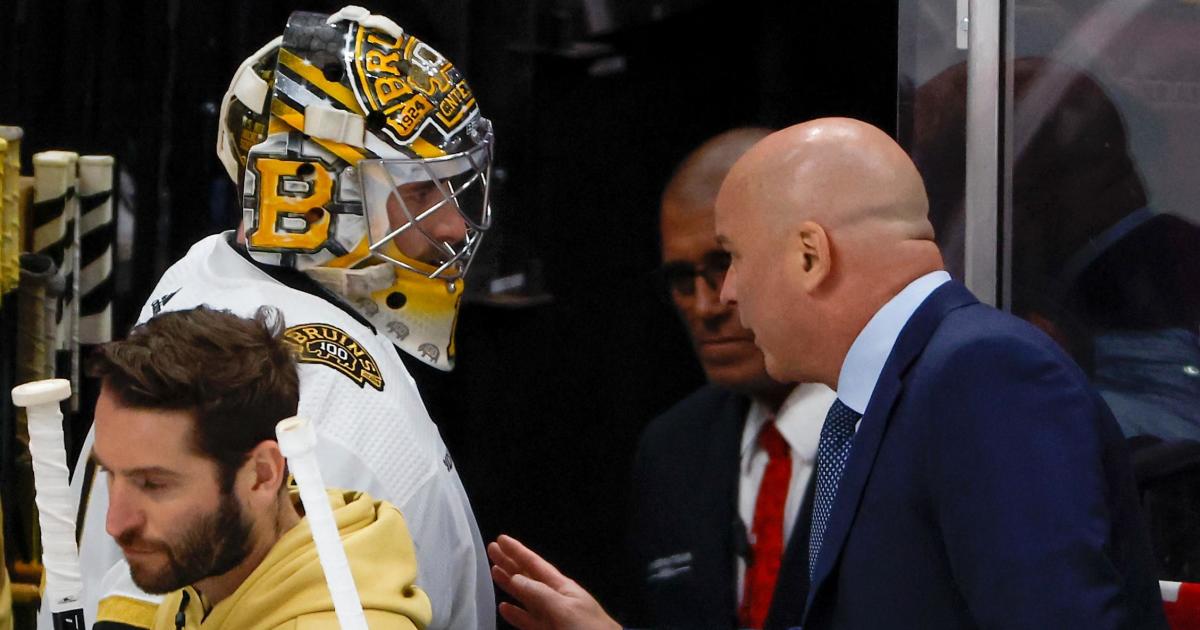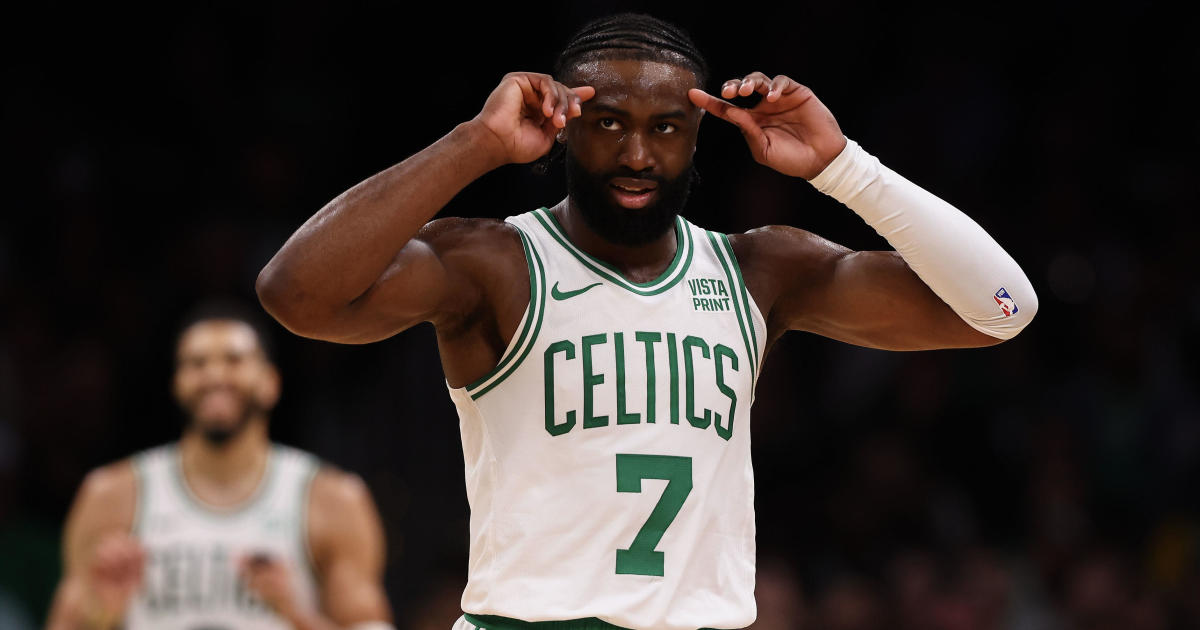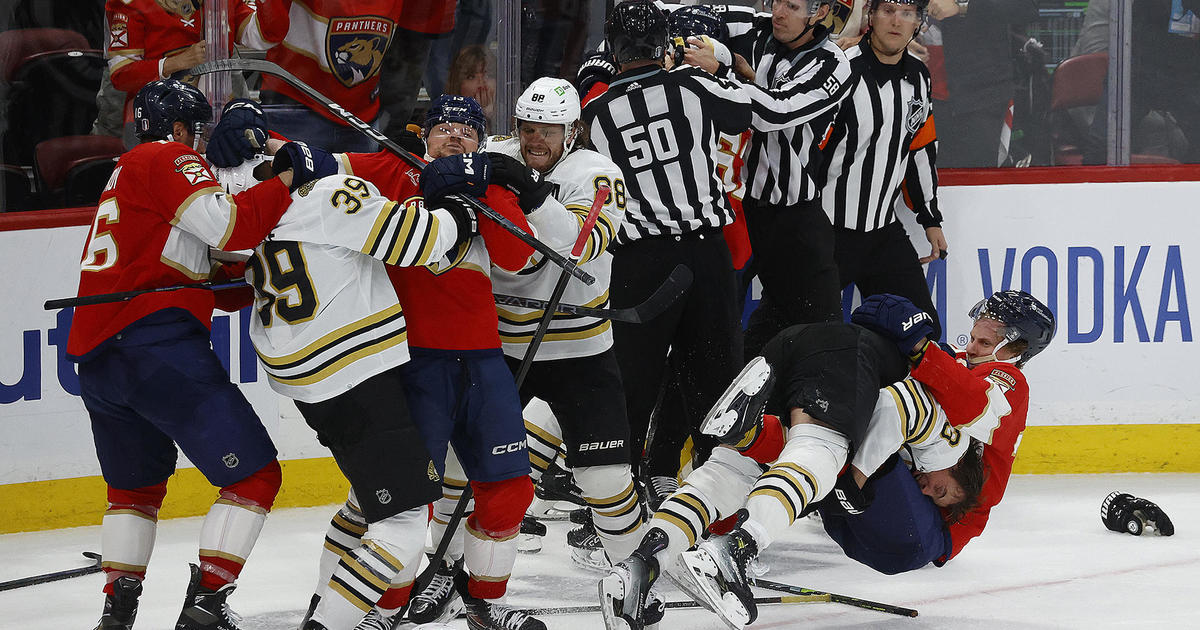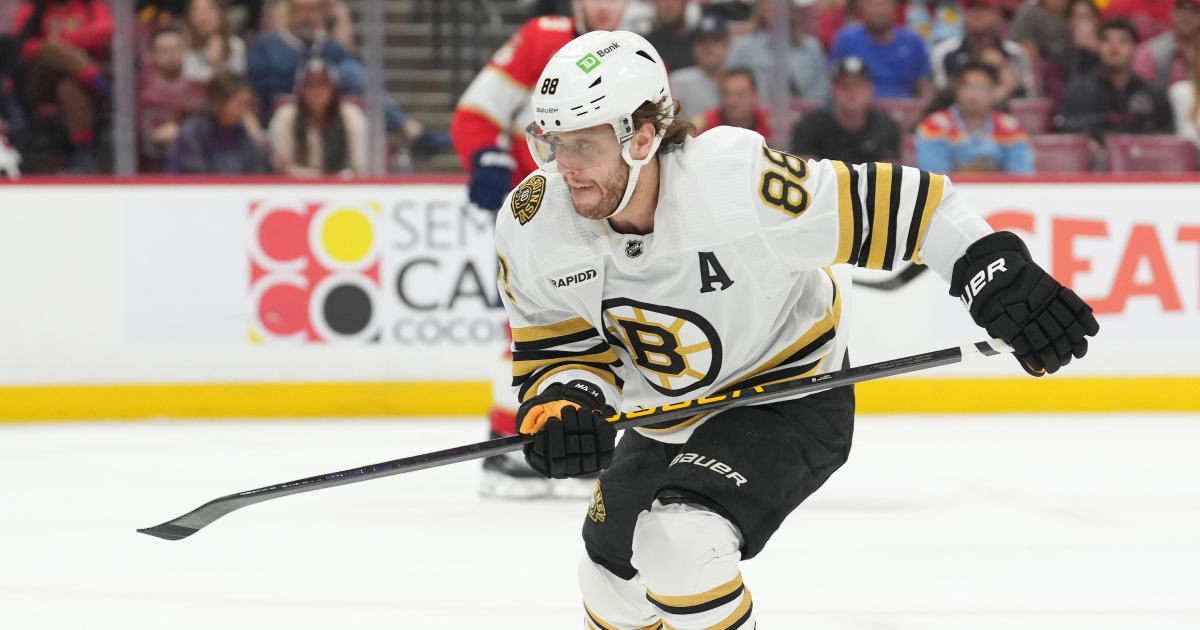After Postseason Marred With Referee Gaffes, NHL Announces Series Of Rule Changes
By Michael Hurley, CBS Boston
BOSTON (CBS) -- Bruins head coach Bruce Cassidy summed it up quite well after his team lost Game 5 of the Stanley Cup Final against the Blues.
I mean, I'm a fan of the game," Cassidy said. "The National Hockey League's getting a black eye with their officiating this playoffs. And here's another one that's going to be talked about."
Cassidy felt particularly aggrieved that night, but it was a common theme throughout the playoffs, when two sets of referees had their postseason ended early, and when the league quietly kept the refs from Game 5 of the Cup Final off the ice for Game 7 of the Cup Final.
Cassidy's issue that night had to do with a number of missed penalty calls on the Blues, most notably a clear and obvious trip of Noel Acciari that immediately preceded what proved to be the game-winning goal for St. Louis. While that particular problem has not been addressed, the league announced a series of rule changes on Thursday, clearly taking steps to fix some of the issues that marred the postseason league-wide.
One such issue did involve the Bruins, when the Columbus Blue Jackets scored a goal immediately after the refs and linesmen all missed a puck leaving the playing surface and hitting the protective netting above the boards. The previous rule stated that a goal could only be taken away if the puck bounced off the netting and into the net, or if the first player to touch the puck after it hit the netting scored the goal. In the case of the Blue Jackets, Oliver Bjorkstrand passed to Artemi Panarin, who scored the goal, so the goal remained on the board and there was nothing anybody could do about it.
Now, the rules are a bit more expansive. Coaches can now challenge plays after "goal calls on the ice that follow plays in the offensive zone that should have resulted in a play stoppage, but did not." Had this rule been in effect last year, then Cassidy could have challenged the Columbus goal.
Of course, that was not the most controversial goal scored in the playoffs. That distinction likely belongs to the Sharks' Erik Karlsson, who scored an overtime game-winner after Timo Meier sent a clear-as-day hand pass to Gustav Nyquist in the Western Conference Final.
After that egregious missed call, the NHL appeared intent on pretending like it didn't happen. Now, at least, such a play will be subject to a challenge, and such an obvious error can (theoretically) be fixed on replay review.
Another point of major controversy this past postseason involved the Sharks, when they were awarded a five-minute power play when, really, no penalty at all had been committed. Because of the impact of an unfortunate but normal collision, the referees decided to kick Vegas' Cody Eakin out of Game 7 of a playoff game -- a game which the Golden Knights led 3-0 near the midway point of the third period.
It likely would have not been remembered much ... except the Sharks went on to score not once, not twice, not even thrice, but four times on the resulting man advantage.
The Knights eventually tied the game to force overtime, but the Sharks would win and advance, thanks in large part to the five-minute power play gifted to them.
The new rules, though, should prevent that from ever happening again. While the referees that night may have overreacted to Joe Pavelski bleeding from his head, they would now be required to review video after assessing a major penalty. That option was not available to the referees when it happened in San Jose.
The new rule reads:
Referees will be required to conduct an on-ice video review for all Major (non-fighting) and Match Penalties they assess on the ice for the purpose of: (a) "confirming" the penalty; or (b) "reducing" the penalty to a two-minute minor penalty. Referees shall not have the option to rescind a called penalty altogether.
Similar to the NBA, where flagrant fouls are reviewed, the NHL appears intent on not improperly assessing a major penalty again.
There were some other changes, too:
--Call it the "Torey Krug" rule. The league decided to ban any player from continuing to play after losing his helmet. That player must either immediately skate to the bench, or find his helmet and put it back on his head before continuing to play. If there is an immediate play on the puck to be made, the player is exempt from the requirement, but this rule represents a major hit to players who love to let their flowing locks blow in the breeze as they skate 150 feet to deliver mammoth checks on unsuspecting opponents. (It's probably for the best.)
--A long overdue change has been made for double-minor penalties on high-sticking infractions. Technology has allowed us all to see when it's actually a player's own stick coming up and causing damage to his own face. Unfortunately, in real time on the ice, that's been difficult for referees to see. As such, it's resulted in players heading to the penalty box for four minutes for a penalty they didn't really commit. Now, "referees will have the ability to conduct an on-ice video review to confirm (or not) their original call on the ice, and, in particular, whether the stick causing the apparent injury was actually the stick of the Player being penalized."
This rule doesn't exactly address the 2018 instance of the NHL making up rules on the fly, when a tripping penalty was assessed to the wrong player. Nor does it address the issue of determining whether a delay of game penalty for a puck over glass should be assessed. But it appears to be a step in that direction.
You might remember David Pastrnak being assessed a double-minor for lifting Victor Hedman's stick into Hedman's face. Such a penalty (theoretically) shouldn't ever happen again.
--The rules limiting teams from making a line change in certain circumstances will be expanded. While teams already were forbidden from making a change after an icing, that restriction will now apply to teams that take a shot from behind the center ice line, leading to the goalie freezing the puck.
Teams will also not be allowed to make a line change after their net gets dislodged, whether intentionally or accidentally. That rule doesn't apply if the offensive team dislodges a team's net.
Additionally, the offensive team will be allowed to pick which faceoff circle the puck will be dropped.
--Speaking of dislodged nets, if a goalie kicks his net off its moorings while an opponent is on a breakaway, it becomes an automatic goal. That will prevent legendary plays like these from taking place in the NHL:
--Additionally, faceoffs will remain in the offensive zone for the attacking team, even if the attacking team is directly responsible for a puck leaving the playing area. And the faceoff dot -- that is, the left or fight circle in the offensive zone -- will be chosen by the attacking team following icings and to begin power plays.
It's quite a hefty adoption of new rules, across the board. While on the hand, you'd surely wish some of these issues would have been addressed prior to the 2019 postseason, the league is at least making an effort to fix issues that were quite obvious when they took place, and the league is trying to help the on-ice officials by affording them some access to the technology that viewers at home have during games. For the Golden Knights, it's certainly too little too late, but if the goal is to limit massive blunders from wrecking postseason enjoyment in future seasons, the rule changes are all a positive step.
Still, it is without a doubt a sad day for players who revel in the rare opportunity to skate in an NHL game without a helmet. Krug's hit was the most recent example, but it happens more often than you might think. Sidney Crosby once authored one of the most jaw-dropping shifts in hockey history during the second overtime of a playoff game in Boston while bucketless.
Alex Kovalev once lost his lid before ripping a backhand past Tim Thomas:
And though he lacked long hair and high-definition footage, Jarome Iginla's helmet-free work in overtime of a Cup Final game was the stuff of legend in Calgary.
Such plays will no longer be permitted. In terms of player safety, it's the right call. Alas, it's nevertheless bittersweet to say goodbye to the rare helmet-free memory in modern-day hockey.
You can email Michael Hurley or find him on Twitter @michaelFhurley.



